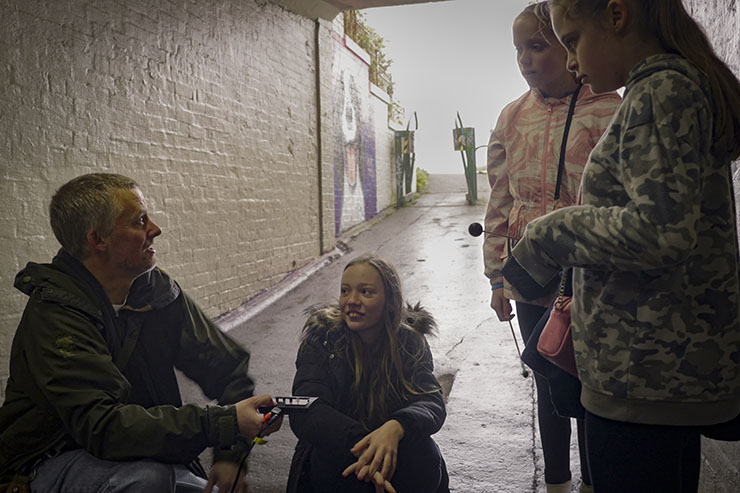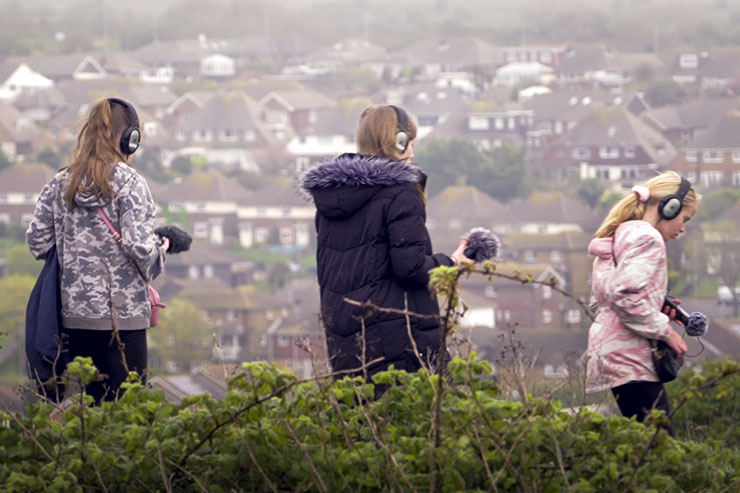Don’t get worried by the word ‘neolithic’ in the title. But this is not a show in any conventional way. Rather, it’s a series of events, workshops and experiments happening in and around Whitehawk during the Brighton Festival. It includes walking tours, exhibitions and explorations of what’s hidden beneath the chalk hills.
Neolithic Cannibals is about experimenting with sonar, creating soundscapes and making music. But it’s also involved in confronting poverty and exclusion with the Crew Club and Lighthouse just two of many organisations involved in the programme.
We spoke to Simon James – who grew up in Whitehawk – about the work he and his team have been developing with both Brighton archaeologists and musicians. He points out that Whitehawk Hill – near the big aerial – is possibly one of the most important prehistoric sites in the area. Arguably, the location of the Whitehawk Hill Neolithic Camp was significant even in Neolithic times. But Simon pointed out that the camp was discovered there in 1929 by a geophysical technique called ‘Bosing’. This enabled experts to determine the solidity of rock well below the surface.
Meanwhile, although splitting the flint (a process called ‘knapping’) was important for toolmaking way back in Neolithic times, Simon is now incorporating vibrations made by these processes into sonic tracks. Some of these have been recorded in his catalogue of sounds – and sometimes music – on local and national radio. Young people from the area who’ve got involved have also been fascinated by hearing the mysterious, if rather unearthly, sounds from inside the rock below.

Alli Beddoes (Lighthouse CEO and Artistic Director) sees this type of production as a way to encounter the “power of sound in shaping narratives, bridging divides and fostering empathy”, while being guided by “the voices of Whitehawk and East Brighton”. Meanwhile, Curtis James (co-founder of Class Divide), says that engagement with this work is important for “sharing stories about the unheard” as well as “inequity in places like Brighton and Hove”. The Class Divide campaign has long argued for changes in local authority policy to prioritise the needs of young people on free school meals.
All these initiatives have been made possible by partners who have supported these projects including: The Crew Club; Brighton & Hove Museums; Lighthouse; and Archaeology South East. Look out for talks, walks and workshops as well as the exhibition (in the Lighthouse Project Space at New England House, Elder Place) on afternoons between Wednesday and Sunday (4th-19th May except bank holidays).
Surely, it’s about knock, knock, knocking on a chalk hill door.
Photos by Simon James

